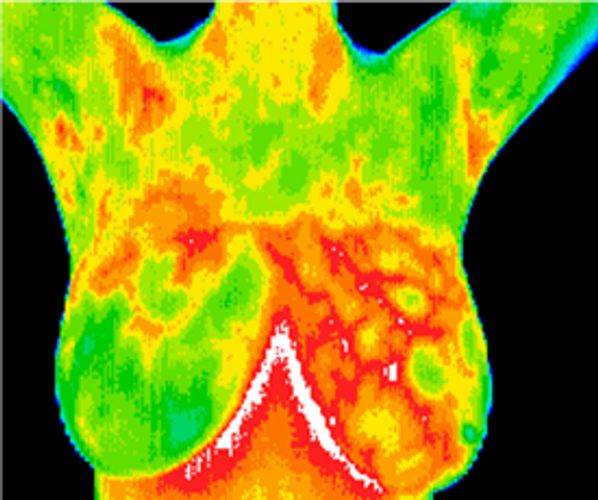Digital Infrared Thermal Imaging (DITI) is a noninvasive physiologic test that can detect subtle changes in skin surface temperature indicative of the onset of a variety of diseases and abnormalities. DITI detects physiologic changes deep in the tissue even though it only images the skin as the developing pathology affects the surrounding sympathetic neural fibers, which relay the message to the skin surface where the local temperature is measured. One function of the skin is temperature regulation. It keeps core temperature constant by regulating the micro-dermal circulation in the superficial layers of the skin. Temperature regulation is automatic via extremely complex interactions controlled by the sympathetic component of our nervous system. Skin temperature is not the same everywhere in the body, and these variations produce interesting patterns, often appearing as a kind of montage, with each pattern being unique for every individual. Thermographically, this is known as a “thermal fingerprint” and it is the foundation of these clinically useful images. Our “thermal fingerprint” is remarkably stable over a lifetime. Only when pathology develops does the pattern change due to the abundance of neural pathways through which temperature regulation occurs. It is the shift away from one’s stable baseline that is the tell-tale sign of developing disease. If a person is alerted to these physiologic changes, intervention can occur much earlier and consultation with a practitioner can address diet, stress management, hormone status, vitamin deficiencies and other aspects of healthy living in an attempt to reverse/prevent the progression of disease. These physiologic changes offer prior notice that disease may be developing before a client is symptomatic.

Medical DITI is a noninvasive diagnostic technique that allows our interpreting physicians to visualize and quantify changes in skin surface












